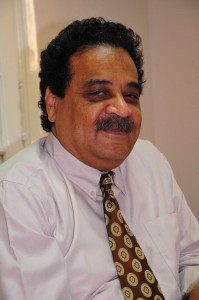
Those who say that what happened on 30 June was a popular revolution supported by the army do not deny that it was the main reason behind the achievement of their goal in overthrowing Morsi, just like it was on 25 January in overthrowing Mubarak. Like Mubarak, Morsi has supporters who believe that he is the legitimate president, and like Mubarak’s, they are resisting that change put forth by 30 June. However, the main difference between Mubrarak and Morsi’s supporters is that the latter’s use a combination of peaceful protesting and sit-ins, and violent populist methods such as blocking roads and besieging state buildings, in addition to employing armed terrorism in Sinai. Conversely, Mubrarak’s supporters, given that they were concentrated mainly in state apparatus, depended on methods of negative resistance by preventing these apparatus from working. They also might have, with the cooperation of some state apparatus, employed some thugs to infiltrate peaceful protests to create a state of violence and confusion. In both cases, the army tries to contain both parties and apply some security and stability to the situation.
One cannot deny the army’s role during the past few years, from 25 January to the transitional period to 30 June, and this will continue for a long while despite what is hoped or demanded. The question to those who believe it was a coup: If 30 June was a coup this means that the army entered the political sphere, assumed power or at least was part of the ruling power, so does that mean the army was outside the political game before 30 June?
The army was in power after Mubarak’s removal, and even after the army retreated from the political arena, it was known that it still had a say in the country’s administration. In this article I want to show that the army’s role in the country is not strange either for the world in general or Egypt.
The United States itself, whose elite are suffering from a case of self-absorption, follows the same model, where the army has a special standing in the authoritative infrastructure, and it is in the forefront of the institutions that participate in decision-making. In the US or any European country, it is acceptable to consult the military when it comes to armament or agreements concerned with weapons of mass destruction or other strategic military issues. This means that the army is a party in deciding the political direction of the US or European states, which are trying to set themselves as the only model which the whole world has to follow. In periods of wars, natural disasters or political crises, the army takes on a political role as well as a protective one.
The Egyptian army’s status is not different from any other armies around the world except in the extent of its role and the limits of its influence, and we find that it is like any other developing country, where the army holds a special prestige and a great level of privacy. In these countries, the army plays a much bigger role than in developed countries since it is the biggest modern institution available, which surpasses any racial, religious, or sectarian issues, and to which all can belong despite any previous affiliations. The direct interests of any developing country’s army is to continue to exist while safekeeping its own privileges in a modern or semi-modern country. It is also the national protector, and for it to suffer divisions means the whole country has become divided like what happened in Sudan. Therefore, the army is very sensitive towards any crisis that could lead to the collapse of state apparatus, and if it does not try to stop this crisis, then it is probably infiltrated or an accomplice of some involved party. In both cases, the army let go of its role or failed to carry it out.
The question is should the army have not interfered despite the popular majority in the streets demanding to overthrow the Brotherhood and the lack of harmony between state apparatus and the unprecedented political congestion? Should it have just let the situation escalate? If the army had been satisfied with watching the situation unfold without interference, it would have risked its own future as well as the country’s.
The army took over power in 1952, but the generals then decided to take off the uniforms and instead run the country through political institutions, unlike the generals of Latin America, who chose to run their countries using military institutions. However, the army remains an involved party in the political arena, for example the conflict between Gamal Abdel Nasser and Abdel Hakim Amer, and the one between Mubarak and Abu Ghazala.
Military rule is not acceptable, and we do not hope for the army to assume an exaggerated role, but once the crisis is over and the country starts to rebuild its institutions, the army will return to its normal role according to international and Egyptian standards.




